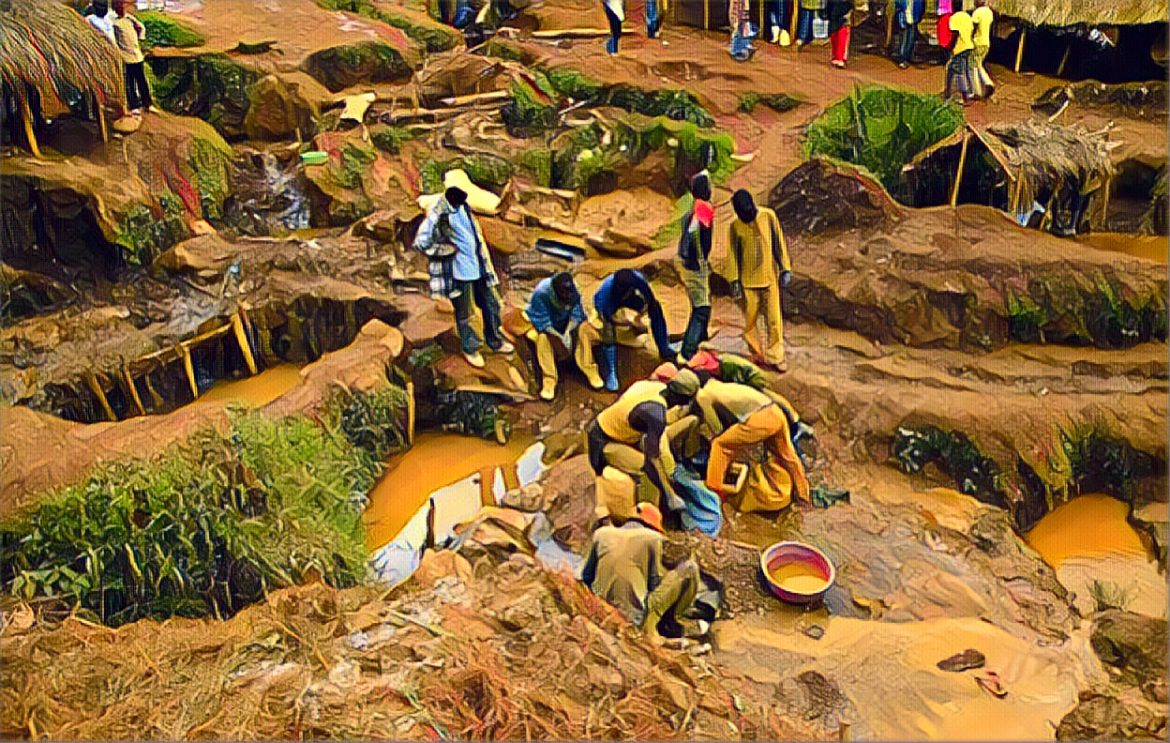In the wake of an El Niño-induced drought, Zimbabwe’s children face an alarming predicament, highlighting the devastating impact of the drought. Widespread hunger and financial hardship have forced families to prioritize basic survival over education, leading many children to drop out of school because they cannot afford food, clothing, or school fees.
As the drought tightens its grip on Zimbabwe, children in gold-rich rural areas are increasingly being driven to work as miners during school holidays. In Makonde West and Hurungwe East of Mashonaland West province, many children, desperate to help their parents put food on the table and pay school fees, head to the Sanyati and Chirariro rivers to mine gold from the riverbeds.
Anesi Makaya, an 88-year-old resident, is deeply troubled by the situation. “My heart aches when I see my children and grandchildren suffer without food, clothing, or education during this time of hunger. This is not the life I envisioned for them,” he murmured.
Makaya’s distress is palpable as he describes their daily struggles. “We can spend three to four days without eating, especially when we don’t find anything from mining. Sometimes we even survive on vegetables. We have no safe water source; we drink from the river.”
Makaya continues, “The children we bring here can spend the whole day without eating. Our fields are dry, and as old as I am, I’m not supposed to be here gold panning. My whole body aches, and I even struggle to stand up, but I try by all means to be here and work for my children.”
The sight of their elders toiling along the rivers often compels many children to abandon schooling to assist their parents and guardians. Discussions about child labor and the harsh, dangerous conditions of gold panning rarely deter them because the food handouts given to desperate villagers are seldom enough.
A villager who preferred to remain anonymous explained, “Sometimes, when maize arrives, it is most likely to be given to ten people or less, as they first give it to the elderly and the handicapped. We do not know how some of us who are not handicapped will survive.”
Unna Chiduwa, an artisanal gold miner from Chirariro, described their dire circumstances. “There is hunger here, so we survive on gold. We appeal for help from the government with food aid. We are surviving on the little gold we find. If there is nothing on a particular day, we sleep on empty stomachs.”
President Emmerson Mnangagwa has declared the 2023/24 summer cropping season a national disaster due to the El Niño-induced drought. USAID’s food security arm, FewsNet, warned that the poor 2024 harvest will severely impact household food security. The situation is exacerbated by high food prices and limited access to income-earning opportunities, leading to crisis levels in the country’s deficit-producing areas.
Consumer prices rose by 49% in March 2024 month-on-month compared to 5.4% in February 2023. According to the 2023 multi-dimensional poverty index, the average deprivation score among people living in multi-dimensional poverty in Zimbabwe was 42.6% of the total population.
Mashonaland West Provincial Affairs and Devolution Minister Marian Chombo assured NewsDay that the government is prioritizing food aid for those in need. “Recently, the President, in his wisdom after the food situation assessment, declared a state of disaster. Resources are being mobilized to ensure that all people get food assistance. The government, through social welfare, will ensure that no person goes hungry as enough resources for food aid are being mobilized and distribution has commenced.”
Chombo emphasized that food distribution is monitored through district development coordinators to ensure every person receives assistance, leaving no one behind.
Chenjerai Kangausaru, Member of Parliament for Hurungwe East, highlighted the dire conditions. “We have challenges at Priviri where young children are panning for gold due to poverty. In Hurungwe East, most gold panners are women. The lack of water due to climate change exacerbates the situation, and we appeal to Zinwa to release water so the community can use it for their gardens to earn a living.”
The United Nations reports that at least 7.7 million people in Zimbabwe will require humanitarian assistance due to the effects of El Niño. The World Food Programme (WFP) and its partners will provide basic food assistance to meet urgent food and nutrition needs of households in both rural and urban areas. In rural areas, WFP’s Lean Season Assistance Programme will be implemented in collaboration with the Public Service, Labour, and Social Welfare Ministry, coordinating with the Food Deficit Mitigation Programme. In urban areas, WFP will implement cash-based transfers to support food-insecure households.
The children forced into gold panning are a stark proof to the severe impact of the El Niño-induced drought on Zimbabwe’s most vulnerable populations. The urgency of the situation demands immediate and sustained intervention to prevent further deterioration and to support these communities in their time of need.
Source: Newsday


